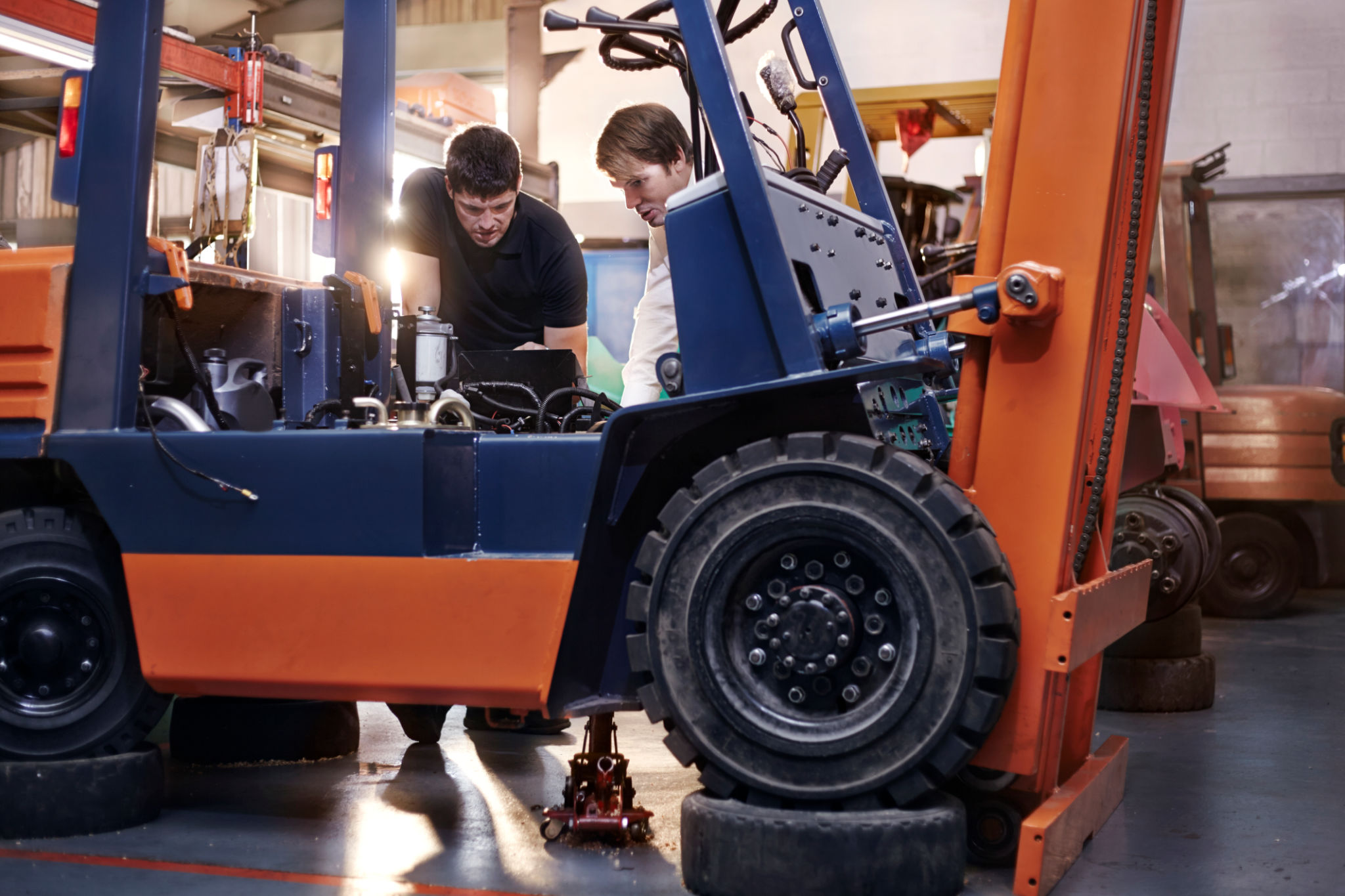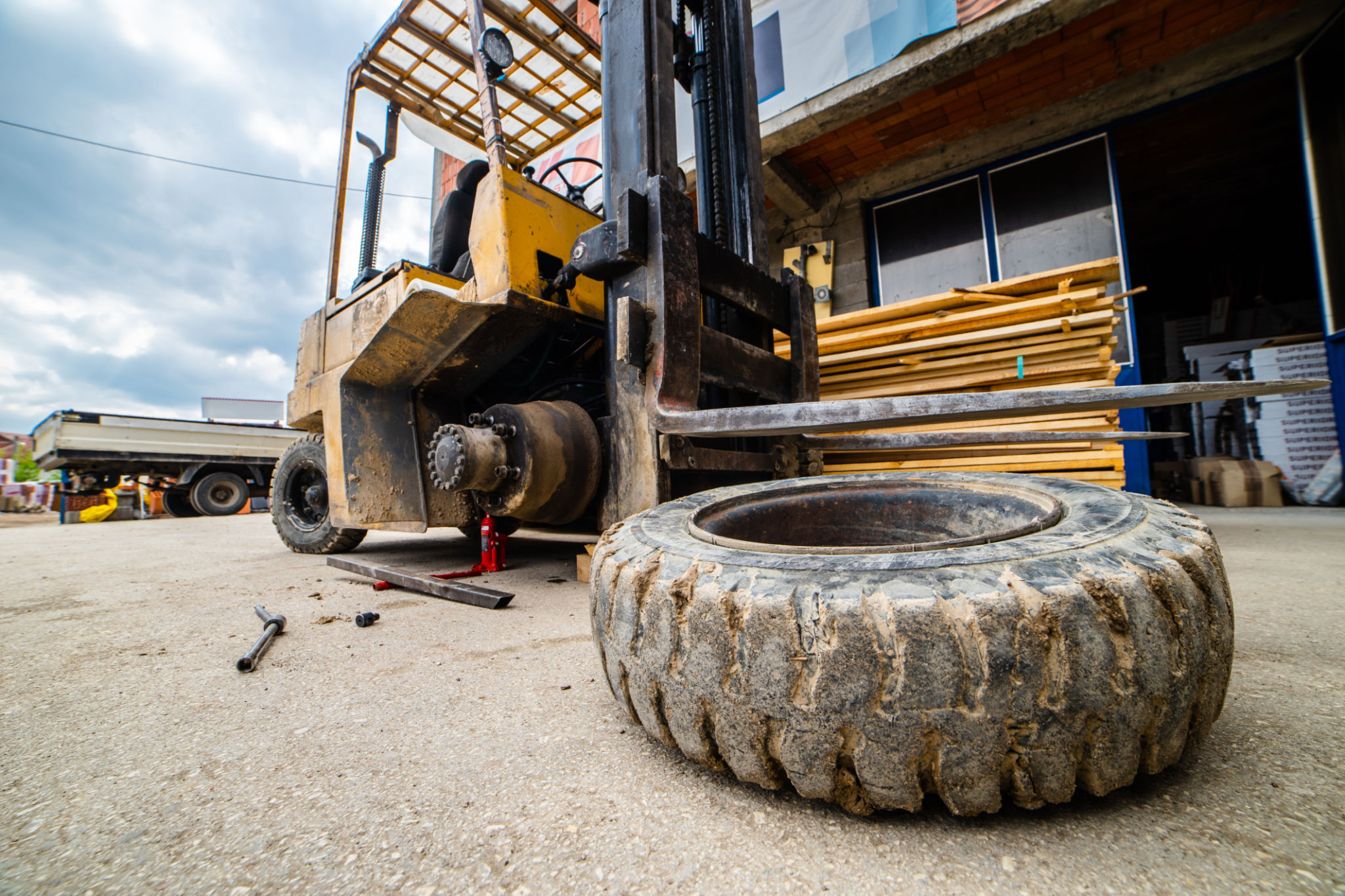Avoiding Common Forklift Servicing Mistakes: A Myth-Busting Guide
Introduction to Forklift Maintenance
Forklifts are a vital part of many industries, providing essential support in the movement and management of heavy loads. However, like any piece of machinery, they require regular maintenance to ensure optimal performance and safety. Unfortunately, there are several common misconceptions about forklift servicing that can lead to costly mistakes.

Myth 1: Only Address Issues When They Arise
A common myth about forklift maintenance is that you only need to service the equipment when something goes wrong. This reactive approach can lead to prolonged downtime and increased repair costs. Instead, it's crucial to follow a proactive maintenance schedule. Regular inspections and servicing help identify potential issues before they become major problems.
Implementing a planned maintenance program can reduce equipment failures and extend the lifespan of your forklifts. This not only saves money in the long run but also ensures that your operations run smoothly without unexpected interruptions.
Myth 2: All Parts Are Created Equal
Another misconception is that all replacement parts are the same, and choosing cheaper alternatives won't make a difference. However, using low-quality parts can lead to frequent breakdowns and even pose safety risks. It's essential to use manufacturer-approved parts to maintain the integrity and performance of your forklift.

While it might be tempting to cut costs, investing in quality parts ensures reliable operation and reduces the need for frequent repairs. This approach ultimately contributes to a safer workplace and enhances overall productivity.
Myth 3: Any Technician Can Perform Repairs
Many operators believe that any technician with basic mechanical skills can service their forklifts. This myth can lead to improper repairs and further complications. Forklifts are complex machines that require specialized knowledge and training to service correctly.
Hiring certified technicians who understand the intricacies of forklift systems is crucial. These professionals can accurately diagnose problems and perform repairs in line with industry standards, ensuring your equipment operates safely and efficiently.

Myth 4: Maintenance Is Just About Fixing Problems
A misconception that often persists is viewing maintenance purely as a process of fixing problems that have already occurred. In reality, maintenance should be an ongoing process that includes routine checks, cleaning, lubrication, and part replacements before issues arise.
Regular maintenance not only addresses existing problems but also plays a vital role in preventing new ones from developing. This proactive approach minimizes downtime and maximizes the operational lifespan of your forklift fleet.
Conclusion: Prioritize Proper Forklift Maintenance
By understanding and dispelling these common myths about forklift servicing, you can take a more informed and proactive approach to maintenance. Prioritizing proper upkeep ensures that your forklifts remain reliable, safe, and efficient, ultimately supporting the success of your business operations.
Remember, effective forklift maintenance is not just about addressing issues—it's about preventing them before they happen. By investing in quality parts, relying on certified technicians, and conducting regular inspections, you can avoid common pitfalls and keep your operations running smoothly.
